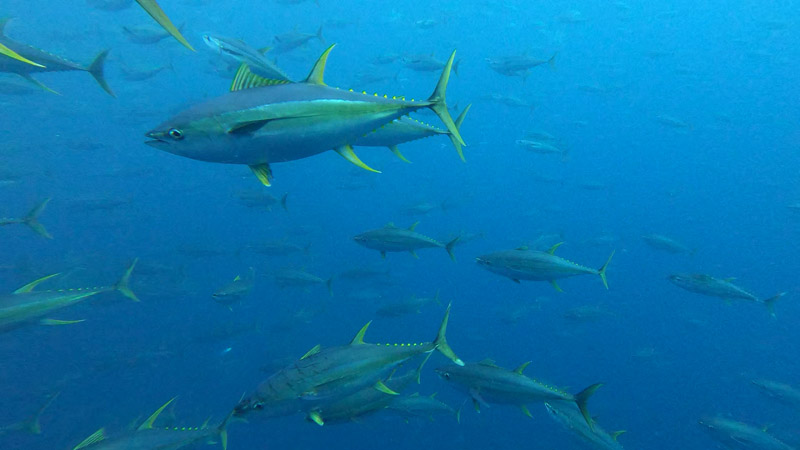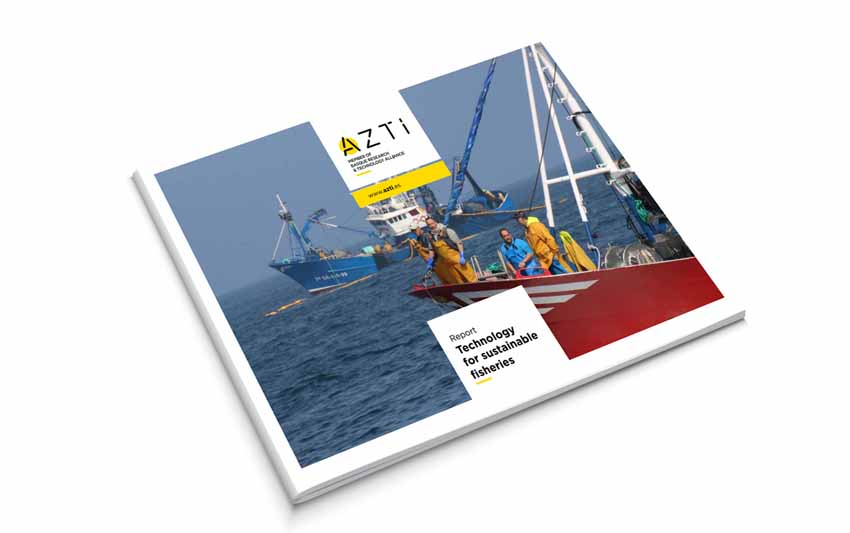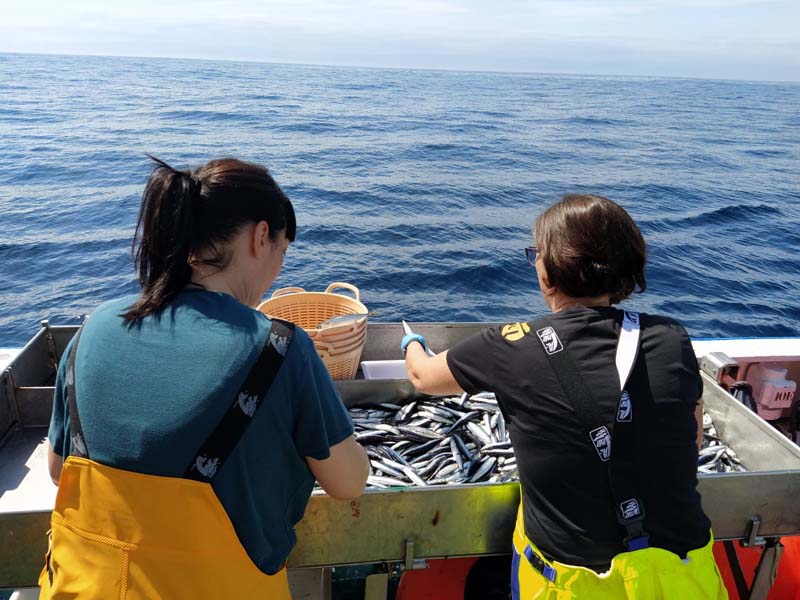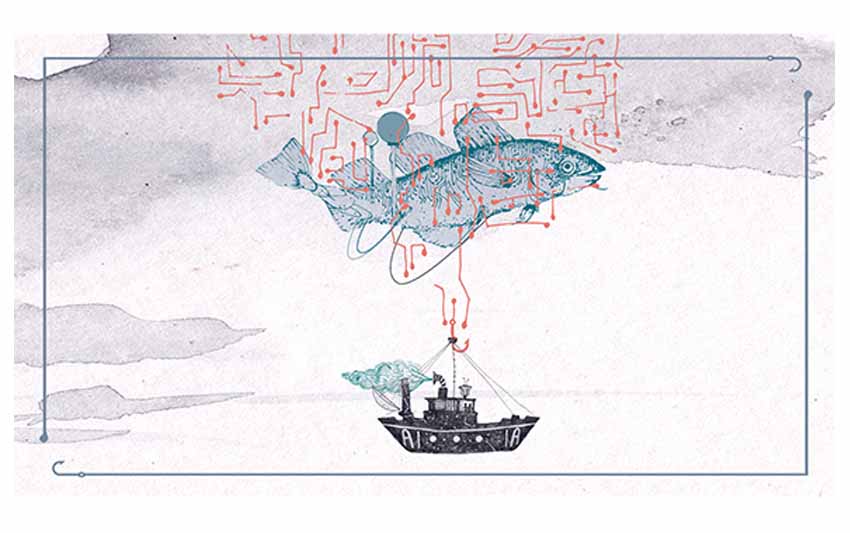Potential tuna species productivity and size will decrease due to climate change
Últimas noticias
Digital Transformation of the Fishing Fleet: AZTI Explores the Future of the Industry with AI and Sustainable Solutions
The replica of the San Juan will set sail on a scientific mission thanks to an agreement between Albaola and AZTI.
Artomaña Txakoli Achieves the Best Enviroscore Category (A), as a Result of Its Environmental Commitment
- The technology centre, AZTI, has led an international research study to find out how the combined effect of climate change and fishing pressure may affect main commercial tuna species and swordfish productivity and body sizes in the future.
- The main conclusion of the study is that across scenarios, tuna stocks analysed will decrease on average their global potential productivity by 36% by 2050. In addition, body sizes are expected to decrease by 15% by 2050 and, consequently, also the demand, the price of fish, and the revenues for the fishing industry.
- A team of modellers and researchers from Europe and Canada have participated in the research, which has been published by the prestigious journal Global Planetary Change.
Understanding how climate change and fishing pressure affect to main commercial species’ productivity and body size is key to being able to adapt and ensure the future sustainability of the fisheries.
In this context, AZTI has coordinated a study, published in the prestigious journal Global Planetary Change, in which the projections in tuna species and swordfish productivity and body size in the future under different climatic and fishing scenarios have been analysed. A model that includes many mechanisms that represent different species’ population dynamics and the competition between them has been used for this purpose.
“We wanted to know how the climate change and fishing pressure is going to impact some of the most commercially important species in order to make decisions to ensure the future of the resources”, according to Maite Erauskin-Extramiana, the AZTI’s researcher who leads the study.

Índice de contenidos
Alteration in productivity and body sizes
The study concludes that climate change and fishing pressure will affect main commercial tuna species and swordfish productivity in the future. On average, analysed stocks are projected to decrease their global potential productivity by 36% by 2050. The results suggest that high trophic level species will be more impacted by climate change than by fishing pressure under the assumption that they remain nearby their Maximum Sustainable Yield levels or current fishing pressure.
“Only the Pacific bluefin shows a slight increase in the future. Five species, Atlantic and Southern bluefins, swordfish, bigeye, and albacore are estimated to decrease in biomass and size at different rates” says Erauskin-Extramiana.
In addition, an overall body sizes decrease of 15% has been projected by the model by 2050 due to climate change. However, there are also stocks such as yellowfin tuna and Pacific skipjack tuna where, on the contrary, increases in size are projected. Fish price and demand are partially driven by body size and therefore, climate change and fishing can potentially reduce revenues for the fishing industry even for the catch of stocks that are estimated to increase productivity.
Adopt climate change adaptation measures
“The fishing industry should adopt adaptation measures to the changing climate by increasing the value of fish through sustainability certifications and reducing fuel consumption and time at sea with higher digitalization. Reducing fuel consumption can be also considered a mitigation measure for climate change since it comprises 5% of the total globally fishing used fuel amount and would reduce CO2 emissions”, concludes Erauskin-Extramiana.
“The results of any model must be taken with caution due to the limitations and uncertainties attached. However, the direction and magnitude of the projected changes highlight the possible upcoming future in absence of decision-making”, she concludes.
This study, which has been conducted by a team of researchers from AZTI in collaboration with the University of British Columbia, has been funded by several European and national research projects: a grant by the Government of Spain Ministry of Science and Innovation (EU-Eranet PCI2018-092995), the project H2020 Mission Atlantic (Ref. Grant Agreement Number 862428), the project H2020 FutureMARES (Ref. Grant Agreement Number 869300), SusTunTech (Ref. Grant Agreement Number 869342) and the SOMBEE project (Belmont Forum, Biodiversa). The work, which has lasted for 3 years, emphasizes where we need to focus efforts to ensure the future of such important marine resources.
27 February 2023







